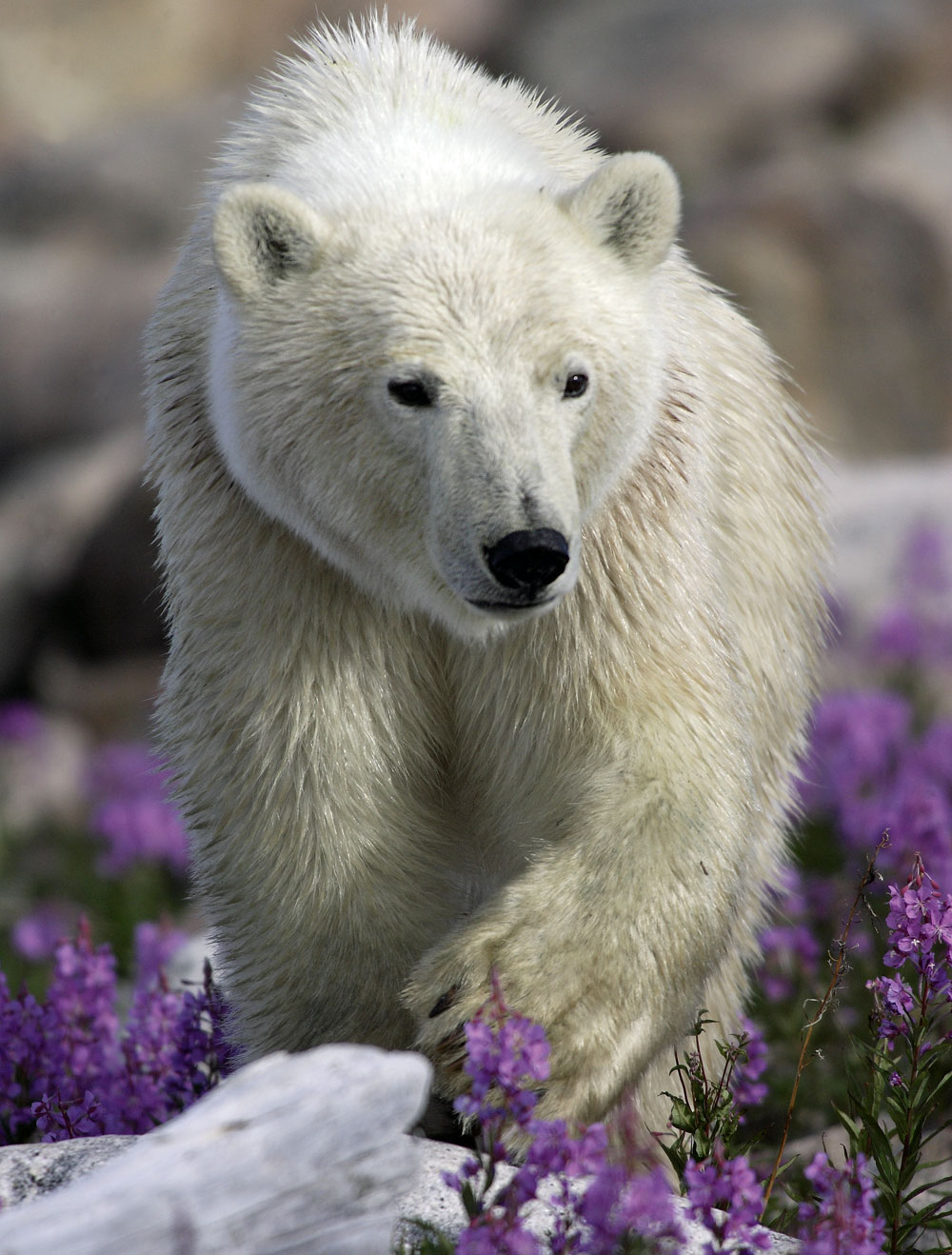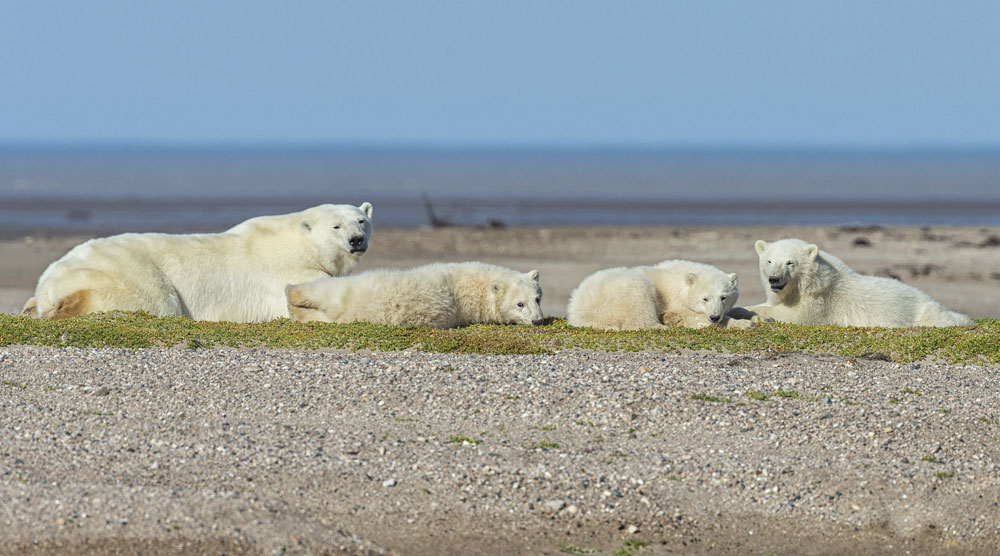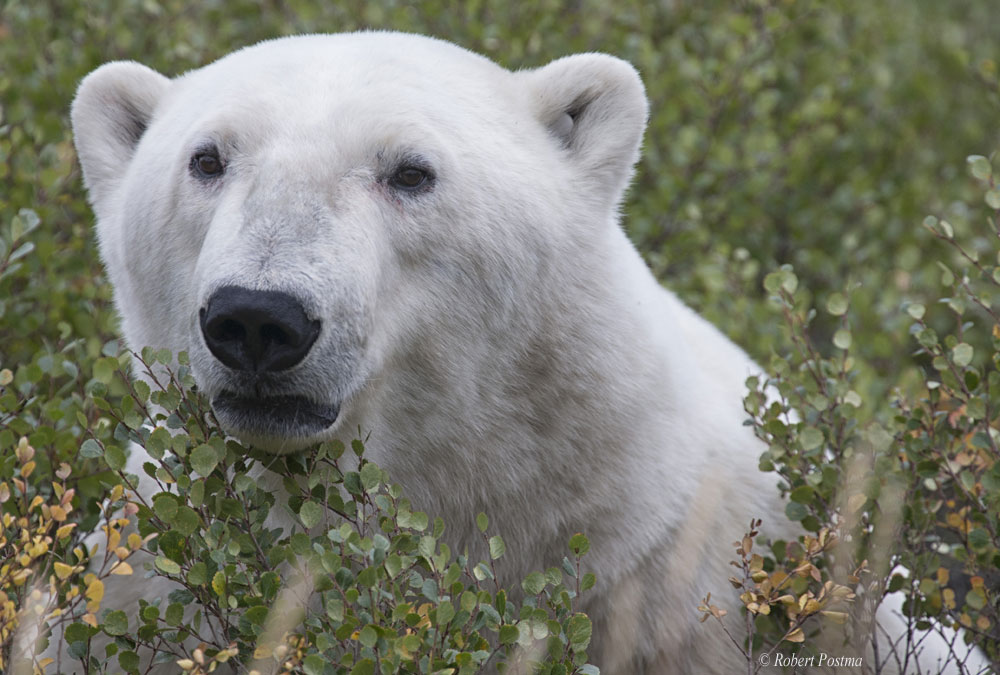
“International Polar Bear Day. Good for me. Good for you.” ~ Matthias Breiter photo.
International Polar Bear Day 2016 is here!
People from around the globe will be celebrating International Polar Bear Day today by doing their best to reduce their impact on the environment, while also creating awareness about the impact of global warming.
Organized by Polar Bears International, this is a day when people are asked to reduce their carbon output by doing things such as turning their thermostats down, driving less, installing and using more energy-efficient devices, and simply being kinder to the environment through reducing, reusing and recycling, which is something we’ve been practicing at our Arctic eco-lodges for over 30 years.
There’s no question global warming has had a dramatic influence on the reduction of the Arctic sea ice. A simple search for “arctic ice melting” on YouTube will provide you with numerous satellite images taken over a period of years that clearly show there is substantially less ice in the Arctic now than there was 30 years ago, and it is breaking up much earlier that it did in the past.
This means more open water for steadily longer periods and less time on the ice for the polar bears that depend on the ice to hunt seals, the main component of their diet. Polar bears come ashore when the ice melts, and they do not eat a lot during their time on land. If they come across a beluga whale or caribou carcass, they will indulge themselves, but they do not typically expend much energy pursuing live prey during the summer.

Polar bear family on gravel bar at Nanuk Polar Bear Lodge. Robert Postma photo.
Polar bears not only need the sea ice to maintain their high dietary requirements, they also use it for traveling, socializing and finding mates. Some studies indicate that less time on the ice leads to weight loss and physical deterioration in polar bears. Theories that correlate declining polar bear populations with a reduction in sea ice make sense, but we have not personally seen an increase in unhealthy bears around our lodges, nor have we seen a reduction in the number of polar bears that visit us on the Hudson Bay coast every summer.
Theories stating that limiting the use of carbon-based fuels can slow global warming do seem to have some validity, and we do everything we can at our Arctic lodges to minimize our footprint on the environment including:
- efficient use of solar power
- strict recycling and composting policies
- biodegradable cleaning products and in-room toiletries
- minimum use of motorized vehicles (hence our walking with polar bears adventures!)
- energy efficient appliances and lights
- locally foraged and harvested food whenever possible
- educate and inform guests about polar bears and their environment
Will our efforts make a difference? Will yours? We think they will, which is why we’ve been practicing the above ever since we began hosting guests in the Arctic. It’s part of our lifestyle now.
Will polar bears become extinct if the sea ice melts completely, or will they adapt and evolve, learning how to hunt efficiently and socialize on land. That’s a decision nature will have to make.

Will he be able to adapt and evolve? Robert Postma photo.
Polar bears are magnificent animals. They have helped us for most of our working lives, in one of the most pristine and untouched places on the planet. The very least we can do is be kind to the earth by reducing our carbon footprint and minimizing our impact on the environment. That’s not only good for the polar bears.
It’s good for mankind.








